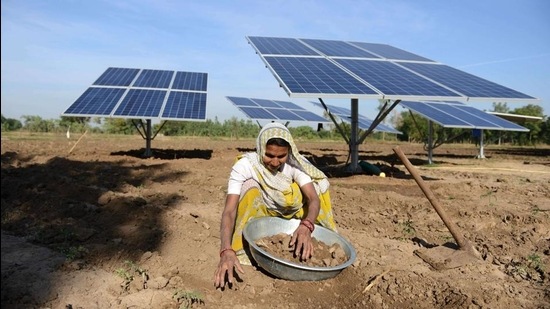Power sector: 7 more states implement reforms, earn more borrowing capacity
On May 17, 2020, the Union government had raised states’ borrowing limit by 2% of GSDP for 2020-21, but 1% of the additional borrowing limit was available on implementation of four reforms with a 0.25% value each
After Madhya Pradesh and Andhra Pradesh, five more states—Bihar, Goa, Karnataka, Rajasthan and Uttarakhand—have implemented power sector reforms stipulated by the Union finance ministry under the Aatmanirbhar Bharat (self-reliant India) stimulus package to earn additional borrowing capacity for the current financial year.

These seven states have received permission to borrow an additional ₹5,030 crore, a finance ministry spokesperson said. “More [states] are expected to join the club,” he said.
There are three parameters a state must meet under the power sector reforms—reduction in Aggregate Technical & Commercial (AT&C) losses, targeted reduction in Average Cost of Supply and Average Revenue Realisation (ACS-ARR) gap, and direct benefit transfer (DBT) of electricity subsidy to farmers.
Also Read | PSBs plan ₹70,000 crores fund to boost agri sector
While Madhya Pradesh and Andhra Pradesh have begun the transfer of electricity subsidy to farmers, the five other states—Bihar, Goa, Karnataka, Rajasthan and Uttarakhand—have successfully met the other two reform parameters, the spokesperson said.
On May 17, 2020, the Union government had raised states’ borrowing limit by 2% of the gross state domestic product (GSDP) for 2020-21, of which 1% was based on certain conditions. One per cent of the additional borrowing limit was available to states on implementation of four citizen-centric reforms with a 0.25% value each—put in place a one nation, one ration card system, improve ease of doing business, reform urban local bodies, and implement power sector reforms. By February 15, 2021, the total reform-linked additional borrowing amount under the four parameters was ₹91,667 crore, the spokesperson said.
After implementing the requisite power sector reforms, states will get permission to borrow an amount equivalent of 0.05% of GSDP for reducing AT&C losses, 0.05% of GSDP for crossing the ACS-ARR gap target, and 0.15% of GSDP for the DBT of power subsidy to farmers.
Andhra Pradesh was the second state after Madhya Pradesh to implement direct cash transfer of power subsidy to farmers that earned them an additional borrowing capacity equivalent to 0.15% of their respective GSDP, the spokesperson said.
Uttarakhand has achieved its targets vis-à-vis the reduction in both AT&C losses and ACS-ARR gap. AT&C losses in the state have reduced to 19.01%; the target was 19.35%. ACS-ARR gap in the state has reduced to ₹0.36 per unit against a target of ₹0.40 per unit. Goa has brought down its AT&C losses to 11.21% against a target of 13.53%, he said.
Karnataka has surpassed its ACS-ARR gap target of ₹0.50 per unit by reducing the gap to ₹0.44 per unit. Rajasthan has also surpassed its ACS-ARR gap reduction target of ₹1.40 per unit by reducing it to ₹1.16 per unit. Similarly, Bihar has also surpassed the ACS-ARR gap reduction target by 10%, he added.
Bihar, Goa, Karnataka, Rajasthan and Uttarakhand are now eligible to collectively mobilise additional financial resources of ₹2,094 crore, he said, adding that Madhya Pradesh and Andhra Pradesh were already granted permission to mobilise ₹1,423 crore and ₹1,515 crore, respectively, in January.
“The additional fiscal space will provide them the much-needed financial resources to fight the Covid-19 pandemic and enhance capital expenditure to stimulate demand,” he said.
There is also significant progress vis-à-vis the other reforms—18 states implemented ease of doing business reforms by mid-February, with Gujarat, Uttar Pradesh and Uttarakhand the latest to do so, he said. The states, including Andhra Pradesh, Assam, Haryana, Himachal Pradesh, Karnataka, Kerala, Madhya Pradesh, Odisha, Punjab, Rajasthan, Tamil Nadu and Telangana, have already reported the implementation of this reform to the Centre. They have been collectively granted permission to borrow an additional amount of ₹38,088 crore, he said.
As of February 19 this year, 21 states have implemented at least one of the four stipulated reforms and have been granted reform-linked borrowing permissions. Of these, 16 states have implemented the one nation one ration card system, 18 states have implemented ease of doing business reforms, six states have implemented local body reforms and seven states have implemented power sector reforms, he said.
Stay informed on Business News, TCS Q4 Results Live along with Gold Rates Today, India News and other related updates on Hindustan Times Website and APPs



